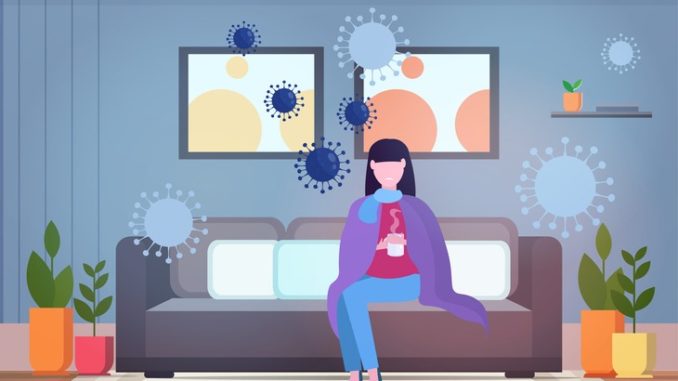
As reported by The Guardian, as countries across the globe hunker down, long-term isolation can have profound physical and psychological effects
As the Covid-19 pandemic continues, millions of people are coming to terms with being increasingly cut off from society.
Beyond the inconvenience of working from home, or not being able to go to bars, restaurants or cinemas, however, experts have found that social isolation can have a profound effect on people’s physical, as well as mental health.
Long-term, isolation even increases the risk of premature death. It’s being called a ‘social recession,’ to match any economic downturn caused by the growing pandemic, and it can have profound physical and psychological effects.
“People who are more socially connected show less inflammation, conversely people who are more isolated and lonely show increased chronic inflammation. Chronic inflammation has been implicated in a variety of chronic diseases,” said Julianne Holt-Lunstad, a professor of psychology and neuroscience at Brigham Young University. “We also have evidence that this is linked to cardiovascular function, just like blood pressure, heart rate, circulating stress hormones are. It’s even been linked to cellular ageing.”
As countries across the globe hunker down, Holt-Lunstad’s research presents a stark look at what social isolation over a period of years can do to the body. She examined data from across the globe to study the effects of people being socially isolated or lonely, or living alone. “Each of these significantly predict risk for premature death,” Holt-Lunstad said. “Loneliness increases earlier death by 26%, social isolation by 29% and living alone by 32%.”
Holt-Lunstad didn’t find that one cause of death was more prevalent than another. The risk of every cause of death – including heart disease, cancer, stroke, renal failure – increased as a result of isolation.
A period of a few weeks in isolation should not lead to the inflammation and risk of cardiovascular trouble that Holt-Lunstad described; people could still see an impact on their health, however.
“We do have evidence that these [periods of shorter isolation] can have immediate and short-term effects on our physiology. However, for instance, if your blood pressure is elevated acutely, that’s going to have a different kind of an effect than if your blood pressure’s elevated chronically,” she said.
“For those with underlying, pre-existing conditions, these acute elevations might precipitate some sort of acute event but, for most of the rest of us, who may not have an underlying condition, we hope that this would just be acute and wouldn’t have these long-term effects.”
One of the reasons people can suffer in social isolation is because personal relationships can help us cope with stress, Holt-Linstad said. “For instance, your body’s response to the ongoing uncertainty of what’s going on right now in the world may differ, depending on the extent to which you feel that you have the resources you need to cope. This may be, in large part, dependent on whether or not you feel like you have others in your life you can rely on – that you’ve got someone who has your back, or you can count on, or who you can get through it with together.”
We are social creatures
Dhruv Khullar, a physician and researcher at Weill Cornell Medicine in New York, said short periods of isolation can cause increased anxiety or depression ‘within days’. “We have evolved to be social creatures. For all the history of humanity, people have been in family structures, people have been in groups, we’re evolved to kind of crave, and rely on, that interaction with other human beings,” Khullar said.
“So, when we don’t have that, it’s a huge void in the way that we go about being human. This is something that has been kind of hard-wired into who we are as beings.”
Khullar, who stressed that the crackdown on social gatherings was necessary, said people do, at least, have a wealth of options to help them stay connected; texting, video calling or even the ‘phone could, potentially, help avert the sense of isolation or loneliness, he said.
“Tech isn’t a perfect substitute. Physical contact, being face-to-face with people – there’s all sorts of subtle social cues we pick up on that we rely on, that are ingrained in us over generations and millennia,” he said. “But I do think you can get part of the way there by engaging with others digitally. I think the richer the format, probably, the better – so a ‘phone call is better than a text, and a video conference is probably better than a phone call.”
However, older people, who are more at risk of Covid-19, may be less technologically savvy, and may have fewer connections to begin with. They might not be able to video conference or even send a text message. Khullar said it was important to reassure them that help is at hand. “Let’s look out for the people that are most vulnerable.
“Make sure that you’re reaching out to them to make sure that they’re doing okay, that they understand that there are people still looking out for them that they’re bonded with, that they’re connected with,” he said.
Don’t forget to follow Dealer Support on Facebook and Twitter!

Be the first to comment